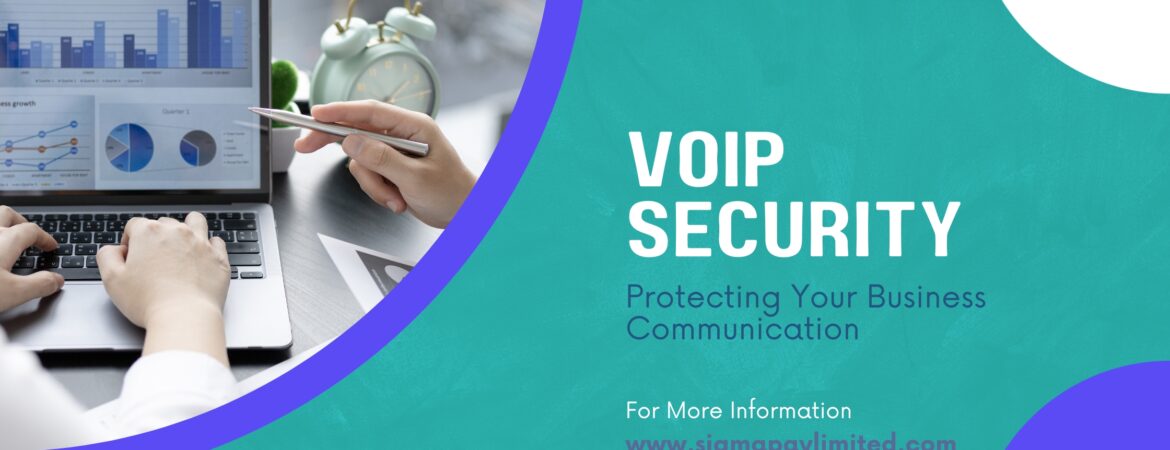
In today’s digital age, Voice over Internet Protocol (VoIP) has become a staple for businesses, offering cost-effective and flexible communication solutions. However, as with any technology, security should be a top concern. VoIP systems are not immune to threats, and ensuring the security of your business communication is crucial. In this blog, we’ll explore some key considerations and best practices for protecting your VoIP system.
Encryption: Implement robust encryption protocols for your VoIP calls and data. Transport Layer Security (TLS) and Secure Real-time Transport Protocol (SRTP) are commonly used to secure VoIP traffic, preventing eavesdropping and data interception.
Firewall and Intrusion Detection:
A well-configured firewall is your first line of defence against unauthorized access. Employ intrusion detection systems (IDS) to monitor and alert you to suspicious activities on your VoIP network.
Strong Passwords:
Ensure that all VoIP accounts have strong, unique passwords. Regularly update and change passwords to reduce the risk of unauthorized access. Consider multi-factor authentication for added security.
Regular Updates and Patches:
Keep your VoIP system up to date with the latest security patches and updates. Cybersecurity threats evolve rapidly, and outdated software can be vulnerable to attacks.
Network Segmentation:
Isolate your VoIP network from other data traffic to minimize the risk of lateral movement by attackers. Segmenting your network can contain threats and limit their impact.
Access Control:
Restrict access to VoIP systems to authorized personnel only. Implement role-based access control to ensure that employees only have access to the resources necessary for their job functions.
Employee Training:
Educate your employees about VoIP security best practices. Train them to recognize phishing attempts and social engineering tactics that could compromise the security of your VoIP system.
Regular Security Audits:
Conduct periodic security audits and penetration testing to identify vulnerabilities and weaknesses in your VoIP infrastructure. Address any issues promptly.
Vendor Security:
Choose VoIP service providers and equipment manufacturers that prioritize security. Inquire about their security measures and compliance with industry standards.
Disaster Recovery Plan:
Develop a comprehensive disaster recovery plan that includes VoIP system backup and data recovery procedures. Be prepared to quickly restore service in the event of an attack or system failure.
Monitoring and Logging:
Implement real-time monitoring and logging of VoIP traffic and system activities. This can help you detect and respond to security incidents promptly.
Conclusion:
In conclusion, VoIP technology offers numerous benefits to businesses, but it also comes with security challenges. Protecting your business communication is paramount, and a proactive approach to VoIP security is essential.


Leave A Comment